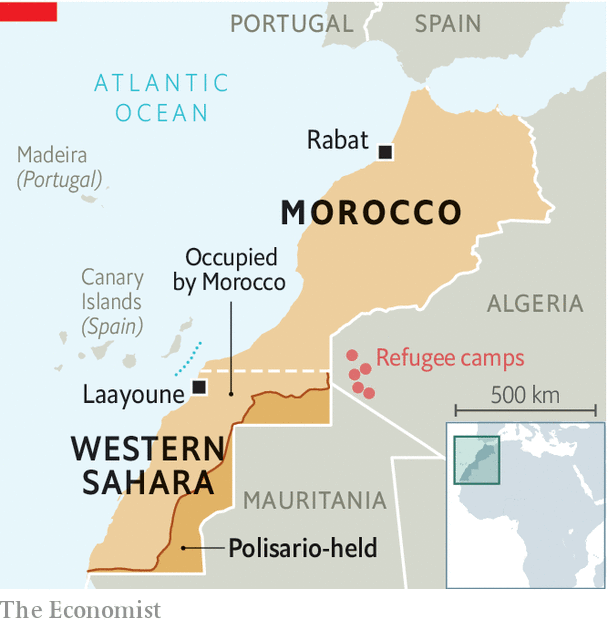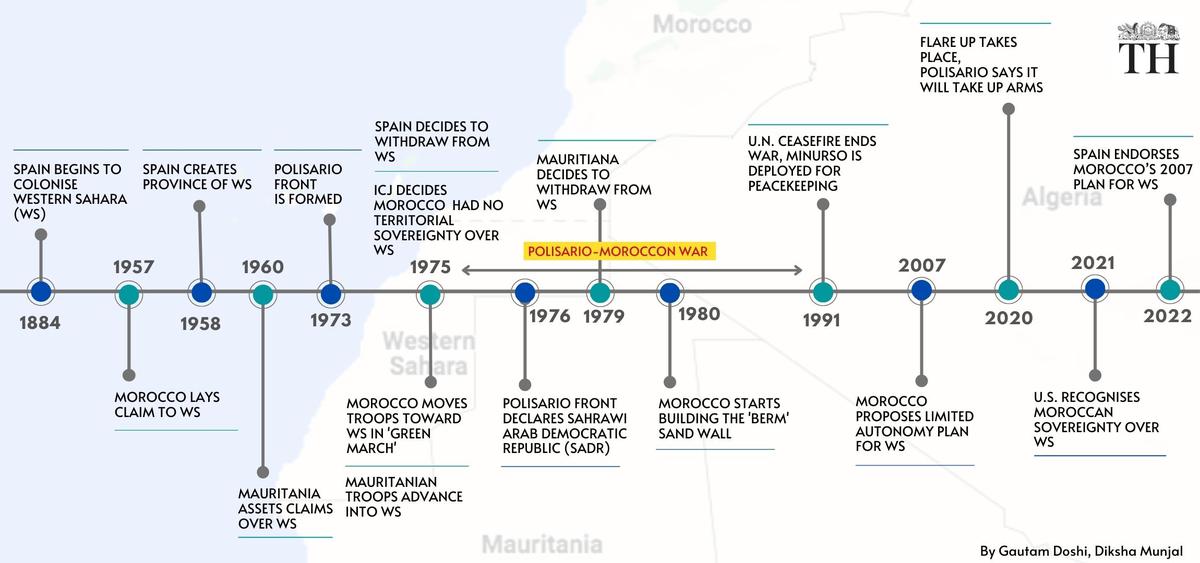7667766266
enquiry@shankarias.in
Why in news?
Algeria recently announced that it would “immediately” suspend its 20-year-old treaty of friendship with Spain.
What is the Treaty of friendship?
What is the Western Sahara region?

When and how did the dispute over Western Sahara begin?
For decades, Morocco has claimed control over Western Sahara while the ethnic Sahrawi fight for their right to self-determination.
The Polisario Front— also called the Popular Front for the Liberation of Saguia el Hamra and Rio de Oro founded in 1973 with the help of Libya and Algeria. It had historic ties with the indigenous population of Western Sahara.
What is the role of ICJ?

What is the aftermath of the 1991 Ceasefire?
What are the recent developments?
Reference